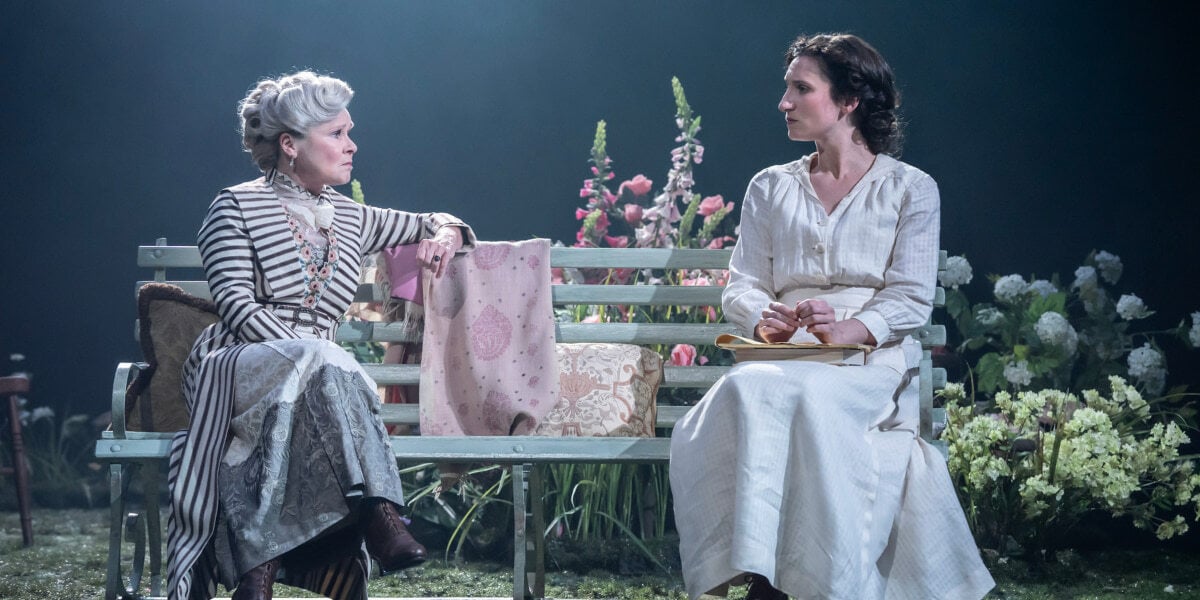Mrs Warren’s Profession Review: Victorian Values, Modern Dilemmas, and One Hell of a Mother-Daughter Chat
Posted on
| By
Hay Brunsdon
Mother knows best? This Victorian drama with a razor-sharp modern edge asks uncomfortable questions and serves up unmissable performances.
George Bernard Shaw might have written Mrs Warren’s Profession in 1893, but let’s be honest — he’d be all over OnlyFans if he were alive today. Not on it, necessarily, but furiously scribbling essays about the hypocrisy of how society treats the women who profit from it. Dominic Cooke’s sharp new West End production, starring the unstoppable Imelda Staunton and her real-life daughter Bessie Carter, makes that link feel so vivid it practically crackles with relevance.

Staunton is, as always, a force. Her Mrs Warren is all grit and polish: part wounded lioness, part immaculate hostess with a criminally well-kept secret. She’s made her fortune running brothels — sorry, “hotels” — across Europe and used that income to raise her daughter, Vivie, in genteel ignorance. (It’s a hard job, but someone’s daughter has to judge it.) But Vivie is no wilting Victorian flower. Bessie Carter, best known as Bridgerton’s brilliantly oblivious Prudence Featherington, trades flamboyant gowns for steely logic and stiff tailoring. Her Vivie has the emotional range of a bank ledger and the self-possession of a woman who'd ghost a proposal to finish a spreadsheet. #GirlBoss
What follows is less a family reunion and more a Victorian episode of Blind Date — I’m picturing Cilla Black with a lace collar, chemisette and parasol — as Vivie faces a line-up of men, each more questionable than the last. Reuben Joseph’s money-grabbing Frank makes the skin crawl with drizzling syrupy baby-talk; ‘kissems’ and ‘Vivems’, and Robert Glenister’s Sir George Crofts might as well arrive with “ick” stamped on his calling card. At one point, Crofts even tries to buy Vivie outright, telling Mrs Warren to name her price, like Vivie is a prize mare at auction.
Kevin Doyle is hilariously blundering as Rev. Samuel Gardner, full of bluster and moral indignation — until his own past creeps in. He loudly disapproves of Mrs Warren’s profession, but it’s revealed that he also has a history with her. A man of the cloth and feet of clay as they say!
But for all its high-stakes moral arguments and verbal sparring, the play is really about women navigating a world built by and for men — and what it costs to opt in, opt out, or try to change the rules. Vivie chooses independence, yes — but only because her mother gave her the means. The irony stings.
The staging, a deceptively lush garden that literally shrinks as the truth comes out—the ensemble of prostitutes quietly take away the flowers and roll up the lawn—is a subtle but scathing metaphor: respectability is a lovely place to sit, but it’s rarely built on clean ground. And while Shaw doesn’t hand us any easy answers, he does force us to look at the questions — many of which still apply. Who gets judged for making money from sex? Who gets away with it? And who built the system in the first place?
Shaw’s play isn’t dusty or dated — it’s a social hand grenade, lobbed straight at Victorian values. And in Cooke’s hands, it still goes off with a bang.
Mrs Warren's Profession is playing at the Garrick Theatre until Sat 16th August. Book your tickets now.